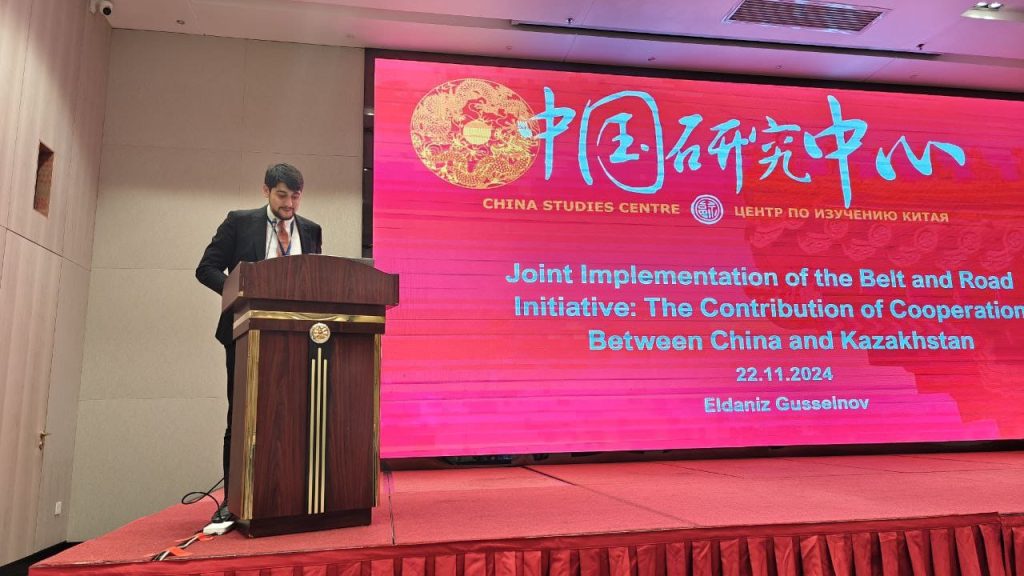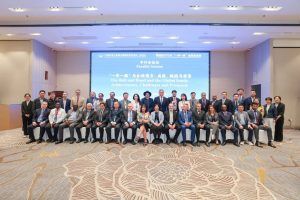TECHNOLOGICAL MODERNIZATION: CHINA’S ACHIEVEMENTS AND STRENGTHENING COOPERATION UNDER THE BELT AND ROAD INITIATIVE

From November 18 to 24, 2024, the Center for China Studies participated in two significant international forums: “Understanding China, Listening to the World” in Guiyang and the “21st Century Maritime Silk Road” in Guangzhou. These events were organized by the International Department of the Central Committee of the Communist Party of China, the China Center for Contemporary World Studies (CCCWS), as well as provincial authorities and analytical organizations. The purpose of the trip was to strengthen international cooperation, promote China’s achievements in technological modernization, and discuss partnership opportunities under the Belt and Road Initiative (BRI).

The first major event was the forum in Guiyang, which brought together representatives from over 50 countries, including leaders, analysts, businesspeople, and journalists. The discussions centered on deepened reforms and openness as the foundation of global development. During the forum, the representative of the Center for China Studies highlighted the importance of high-quality growth and sustainable development, presenting a vision based on the strategic initiatives of President Kassym-Jomart Tokayev. Kazakhstan’s achievements in economic diversification, technological modernization, and education system reform were emphasized. Participants highly appreciated Kazakhstan’s role in creating a sustainable economic model based on innovation and partnership with China. Joint projects in infrastructure, energy, and logistics worth over $21 billion, as well as achievements in bilateral trade, which reached $41 billion in 2023, were noted.
During visits to infrastructure sites in Guizhou, the delegation was shown China’s achievements in bridge construction and transport integration. For instance, the Balin River Bridge demonstrated how well-thought-out transport planning can accelerate regional development, improve accessibility, and reduce transportation costs. Additionally, the delegation visited the Experience Exchange Center in the National Big Data Experimental Zone. This facility is an example of successfully integrating innovations into the regional economy, where the digital economy constitutes a significant share of GDP. Demonstrations of projects in waste recycling and process digitization showcased how technologies can improve management efficiency and drive sustainable development.
The second key event was the forum in Guangzhou, dedicated to implementing the Belt and Road Initiative in the context of development in the Global South. The representative of the Center for China Studies delivered a report on the strategic importance of transport corridors and the digitization of logistics for regional integration and strengthening global supply chains. Examples of successful infrastructure projects were highlighted, including the development of the Khorgos dry port, modernization of railways, and creation of multimodal logistics hubs. These projects have fostered economic growth, strengthened bilateral ties, and positioned Kazakhstan as a vital transit hub between Europe and Asia. Particular attention was paid to technology transfers and joint developments in sustainable development, including projects in renewable energy.
Participation in these events reaffirmed Kazakhstan’s strategic importance within the Belt and Road Initiative. It not only provided an opportunity to present the country’s achievements but also to establish new connections with representatives of various countries and organizations. Prospects for further partnership development with China were discussed, including investments in infrastructure, expansion of the digital economy, and deepening cultural exchanges.
Kazakhstan demonstrated its readiness to actively engage in international initiatives focused on sustainable growth, economic integration, and innovation. The outcomes of the trip made it clear that cooperation with China opens new horizons for Kazakhstan’s economic development, promotes investment, and strengthens its role in the global economy.
China Studies Centre, Astana.
